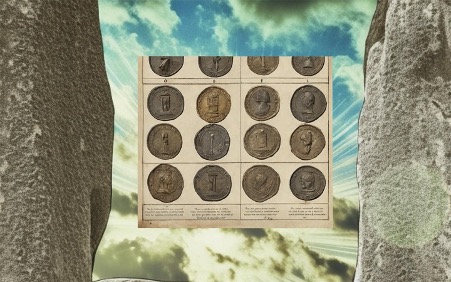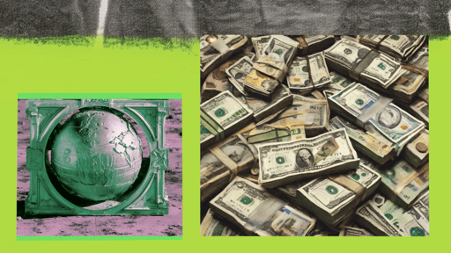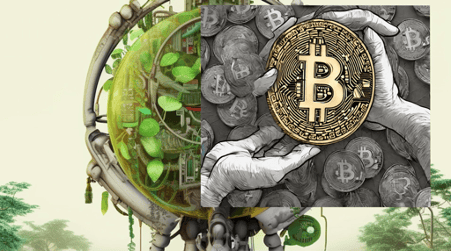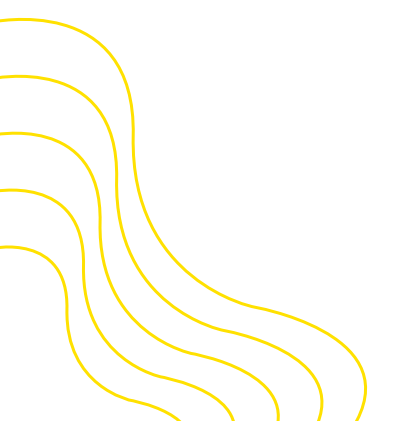


Valentina Vetturi, La Matematica del Segreto. Lecture #2 (The Math of the Secret. Lecture #2) (film stills) 2023, photo credit: Valentina Vetturi, Courtesy of the artist
Born Reggio Calabria, Italy (1979), lives and works between Bari, Italy, Bruxelles, Belgium and Ginevra, Switzerland
La Matematica del Segreto. Lecture #2 (The Math of the Secret. Lecture #2) 2024
single-channel HD video, ratio 16:9, color, stereo sound, 17.18 mins
Courtesy of the artist
The production of this work was supported by MA*GA Museum Gallarate, Italy – MIC Ministero della Cultura, Fondo Cultura 2021 & Studio Valentina Vetturi.
Commissioned by Lagos Biennial 2024
Artist’s statement
The Math of the Secret. Lecture #2 is the second work in an ongoing video series delving into the concept of money. It redefines the lecture-performance format, creating an intricate dialogue between human expertise and artificial intelligence. The series examines money as a relational technology that evolves in space and time based on its origins, uses and purposes. It challenges the orthodox view that perceives money as a neutral medium solely for exchange. A distinguished scholar engages in thought-provoking discussions in each video, contemplating money’s history, functions, power dynamics, and its influential role in societal changes. The scholar’s voice and insights interweave with images and texts generated by text-to-text and text-to-image models.
At the Lagos Biennial, I’m presenting The Math of the Secret. Lecture #2, features sociologist of economics Adam Hayes. Hayes offers an unconventional perspective on money, tracing its roots to agrarian civilization, debt concepts, and the emergence of private property. The decision to explore money stemmed from my research on web technologies and the digitalization of our lives, leading me to attend Bitcoin Meetups in Switzerland in 2015/16 and later pursue a Master of Science in Digital Currencies (2019). One of the program’s courses, taught by Adam Hayes, focused on the history of money. There, I encountered unconventional narratives about money, exploring authors like David Graeber and his work Debt: The First 5000 Years challenging traditional assumptions taught in schools. Money profoundly influences our lives, yet there’s a lack of deep awareness about its history and its connections to anthropological and power systems.
Thus far, I collaborated also with art historian Maria Giovanna Mancini (Lecture #1) and philosopher Mara Montanaro (Lecture #3). Words like debt, taxes, stones, cryptocurrency, art market, patronage, central banks, decentralized systems, emancipation, gender, and class issues form the essence of the series score.
The videos adopt a performative approach, simulating a live engagement involving diverse sources and intelligences, both living and non-living. Imperfect yet deliberate, the human voice converses with collages and digital image overlays. Viewers witness a flow, a dance of images reminiscent of daily scrolling feeds, while also unveiling the generative process and its idiosyncrasies.
I intentionally introduced paradoxes and maintained a rhythm that reflects the image-generation process, mirroring the pace of our lives. Errors, chatbox misunderstandings, and AI-imposed blocks became integral elements of the artworks.
Platforms like OpenAI or Midjourney, potentially the upcoming web giants (even if they will change names or funding entities), owe their prominence to economic resources, enabling machine sophistication and the vast data absorbed during the ‘training’ phase and ongoing usage. We continue shaping these models while using them, sometimes through subscription fees. Discussions among theorists, scientists, and researchers are underway concerning the continuous user-induced training of these AI models.
Present-day artificial intelligence bears the imprints of our collective online presence, inheriting biases related to gender, race, and species, impacting our thought processes. In this work I delve into the collective unconscious of the web and our shared unconscious in general. It was an exhilarating journey. Yet, who would desire their unconscious to become a commodity available for sale and accessible to all?
Valentina Vetturi’s work is included in CAPTCHA.









